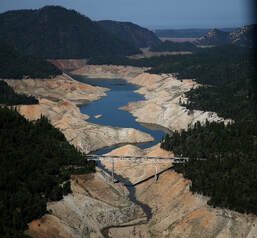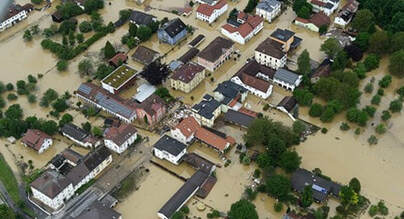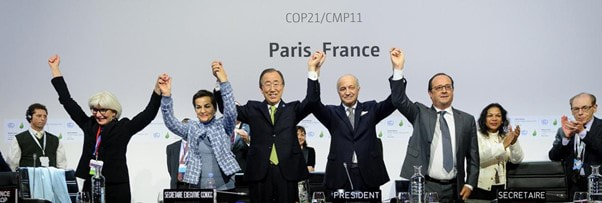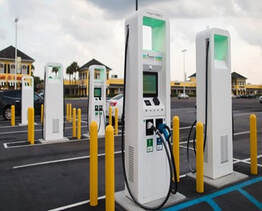
The Castle Point Young Person's Climate Ambassador Scheme is a joint initiative from the Castle Point Climate Action Group, which is affiliated to Friends of the Earth, Castle Point Borough Council and Essex Youth Service
If you have started reading this then you are probably already aware that we are living through a period of climate crisis and that the damage being done by extreme weather events is increasing around the world.
You will probably already be aware that around the world, there are increasing trends in intense storms, more floods, droughts and wildfires and this year we have experienced hundreds of new record high temperatures; and you will understand that the problems are man made because of our over reliance on fossil fuels and excessive greenhouse gas emissions.
If you have started reading this then you are probably already aware that we are living through a period of climate crisis and that the damage being done by extreme weather events is increasing around the world.
You will probably already be aware that around the world, there are increasing trends in intense storms, more floods, droughts and wildfires and this year we have experienced hundreds of new record high temperatures; and you will understand that the problems are man made because of our over reliance on fossil fuels and excessive greenhouse gas emissions.
The World Health Organisation estimates that, by 2030, the number of additional deaths caused by these natural disasters will exceed 250,000 a year. The financial costs are enormous!
This is probably not going to be the shortest piece you've ever read but it might well be one of the most important so please do read on.........
So what is being done about it?
Scientists believe that a rise in global temperatures of more than 2oC will present serious challenges to the way we live. The President of the United Nations referred to it as “an existential threat to human civilisation”.
In 2015 the world’s leaders met in Paris and agreed to take action to keep the rise in global temperature to below 2 degrees C and preferably below 1.5 degrees C. Each country agreed to take action to become carbon neutral by 2050.
This is probably not going to be the shortest piece you've ever read but it might well be one of the most important so please do read on.........
So what is being done about it?
Scientists believe that a rise in global temperatures of more than 2oC will present serious challenges to the way we live. The President of the United Nations referred to it as “an existential threat to human civilisation”.
In 2015 the world’s leaders met in Paris and agreed to take action to keep the rise in global temperature to below 2 degrees C and preferably below 1.5 degrees C. Each country agreed to take action to become carbon neutral by 2050.
Unfortunately, the actions that have followed that agreement have not met the grand aims that the leaders set. We are falling behind our targets. Carbon emissions continue to rise.
In the UK, we claim to be a world leader and we have made significant progress in reducing our carbon emissions. Since 1990 we have cut our carbon emissions by 44%, mostly by phasing out coal powered electricity generation and replacing it with solar and wind power.
Whilst this success is to be applauded, frankly, this represents the easy bit. It is important to recognise that there is a lot more that needs to be done and there are some sectors, such as transport and agriculture, where little or no progress in reducing carbon emissions has been made and that will be a lot more challenging.
According to the latest Climate Change Committee Report (July 2021) in the last 20 years, reductions in emissions from shipping and land transport was minimal and emissions from aviation had risen slightly (until the pandemic arrived!). Emissions from agriculture have fallen by less than 10%.
Even in the UK, who claim to be a world leader in reducing carbon emissions, we are currently falling well short of achieving our goal of becoming carbon neutral by 2050.
Climate scientists warn that, should we allow global warming to exceed 2 degrees C, then the climate will change in ways that are completely unpredictable and the effect on us will be unpredictable – but will be severe!
Emissions from Production and Consumption.
The UK figures on carbon emissions that are published are based on the greenhouse gases that we physically produce in this country. However, if we buy (say) a new car that was made in Germany, then the carbon emissions from the car’s manufacture get recorded in Germany. Not the UK. But it is our purchase of the car that has created the production.
So it is equally important to track the carbon emissions for which we are responsible because of what we consume. On this measure the UK is doing much less well. In fact, the latest government figures show that since 2017 our carbon emissions actually rose.
One of the ways that the UK has reduced its carbon footprint is because we have lost a lot of our “dirty” industries, that produce a lot of greenhouse gases, to foreign competitors. So the carbon emissions have not really been reduced, they have simply been moved abroad. As climate change is a global problem, this is not helping.
So what needs to be done?
The inevitable conclusion is that we all need to make significant changes to the way that we conduct every aspect of our lives. The challenge is to find ways of facilitating these changes that are realistic, achievable and acceptable. But the need is urgent!
At the national level, we know that there is a need for major investment in new “green infrastructure” such as even more wind and solar farms, recharging stations for electric vehicles as well as new technologies that will capture carbon.
In the UK, we claim to be a world leader and we have made significant progress in reducing our carbon emissions. Since 1990 we have cut our carbon emissions by 44%, mostly by phasing out coal powered electricity generation and replacing it with solar and wind power.
Whilst this success is to be applauded, frankly, this represents the easy bit. It is important to recognise that there is a lot more that needs to be done and there are some sectors, such as transport and agriculture, where little or no progress in reducing carbon emissions has been made and that will be a lot more challenging.
According to the latest Climate Change Committee Report (July 2021) in the last 20 years, reductions in emissions from shipping and land transport was minimal and emissions from aviation had risen slightly (until the pandemic arrived!). Emissions from agriculture have fallen by less than 10%.
Even in the UK, who claim to be a world leader in reducing carbon emissions, we are currently falling well short of achieving our goal of becoming carbon neutral by 2050.
Climate scientists warn that, should we allow global warming to exceed 2 degrees C, then the climate will change in ways that are completely unpredictable and the effect on us will be unpredictable – but will be severe!
Emissions from Production and Consumption.
The UK figures on carbon emissions that are published are based on the greenhouse gases that we physically produce in this country. However, if we buy (say) a new car that was made in Germany, then the carbon emissions from the car’s manufacture get recorded in Germany. Not the UK. But it is our purchase of the car that has created the production.
So it is equally important to track the carbon emissions for which we are responsible because of what we consume. On this measure the UK is doing much less well. In fact, the latest government figures show that since 2017 our carbon emissions actually rose.
One of the ways that the UK has reduced its carbon footprint is because we have lost a lot of our “dirty” industries, that produce a lot of greenhouse gases, to foreign competitors. So the carbon emissions have not really been reduced, they have simply been moved abroad. As climate change is a global problem, this is not helping.
So what needs to be done?
The inevitable conclusion is that we all need to make significant changes to the way that we conduct every aspect of our lives. The challenge is to find ways of facilitating these changes that are realistic, achievable and acceptable. But the need is urgent!
At the national level, we know that there is a need for major investment in new “green infrastructure” such as even more wind and solar farms, recharging stations for electric vehicles as well as new technologies that will capture carbon.
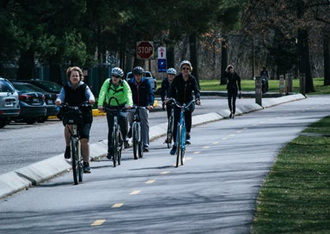
However, it is also clear that each one of us will need to change the way we live. We need to change our lifestyles so we are less wasteful and emit fewer “greenhouse gases”.
If we all make a small change to the way we live our lives, to our consumption, then, between us, we can make a significant contribution to reducing carbon emissions.
Some of us will be able to contribute by undertaking major projects like:
- Buying an electric car
- Installing solar panels
- Investing in improved insulation
- Installing a heat pump
However, we can all make a contribution by a series of small changes that still add up to a significant reduction by:
- Being more careful with energy (turning off lights, not over filling the kettle etc)
- Eating less meat, more plant based meals.
- Walking and cycling whenever possible rather than driving.
- Using public transport wherever possible, rather than driving.
- More recycling, repairing and reusing.
So how do we persuade people to make these important changes to their lifestyle?
Young Person’s Climate Ambassador Scheme
The Castle Point Climate Action Group, working in partnership with the Essex Youth Service, are setting up a new campaign group made up of committed young people whose aim will be to raise awareness of the urgent need for us all to make changes to our lifestyles in order to reduce carbon emissions.
Climate Ambassadors will seek to persuade businesses, organisations and individuals to sign up to commit to making changes to their lifestyles that reduce carbon emissions. They will provide information, guidance and advice on how to achieve those changes
In the future, all young people in Castle Point will have an opportunity to join the scheme and become a Climate Ambassador. However, we are currently recruiting 14 young people to form a Steering Group to develop ideas on how to communicate these important messages and take responsibility for planning and organising their activities.
It is important to understand that the Young Peron’s Climate Ambassador Scheme will not be a protest group. Ambassadors will be expected to engage with people and organisations constructively, positively and with respect.
Members of the Steering Group will
So, if you feel you have any one of these following skills then we encourage you to apply.
Young Person’s Climate Ambassador Scheme
The Castle Point Climate Action Group, working in partnership with the Essex Youth Service, are setting up a new campaign group made up of committed young people whose aim will be to raise awareness of the urgent need for us all to make changes to our lifestyles in order to reduce carbon emissions.
Climate Ambassadors will seek to persuade businesses, organisations and individuals to sign up to commit to making changes to their lifestyles that reduce carbon emissions. They will provide information, guidance and advice on how to achieve those changes
In the future, all young people in Castle Point will have an opportunity to join the scheme and become a Climate Ambassador. However, we are currently recruiting 14 young people to form a Steering Group to develop ideas on how to communicate these important messages and take responsibility for planning and organising their activities.
It is important to understand that the Young Peron’s Climate Ambassador Scheme will not be a protest group. Ambassadors will be expected to engage with people and organisations constructively, positively and with respect.
Members of the Steering Group will
- Be aged between 13 – 18
- Be committed to the cause of reducing carbon emissions
- Have a positive and constructive approach
- Be able to work as a member of a team
- Be willing to learn.
So, if you feel you have any one of these following skills then we encourage you to apply.
- Effective communication skills (written, verbal, theatrical or artistic).
- Effective use of social media.
- Effective website design and management.
- Effective research skills.
|
for by clicking here:
|
|
and the application form by clicking here:
|
Or, for further information please email [email protected]
Proudly powered by Weebly





